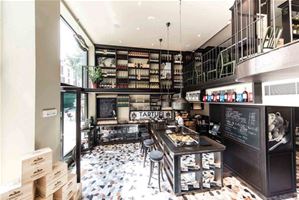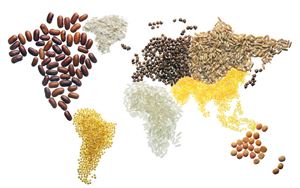When Italians cast their ballots on February 24–25, not many expected a no-win result. Favoured in opinion polls to lead both the lower house and the Senate, the Democratic Party (PD) unexpectedly lost some 10 points in the run up to the elections and the populist party led by comedian Beppe Grillo, the Movimento 5 Stelle (M5S), emerged as a real contender, claiming 108 seats in the lower house and 54 seats in the Senate.
The centre-right Popolo della Liberta’ (PdL) made a surprise comeback, winning 124 seats in the lower house, but it was not enough to reach the PD, whose centre-left coalition won a majority prize and 50 additional seats to lead the lower house, claiming a total of 340 seats. With 116 seats in the Senate, the PD slid by the PdL with only 3 seats ahead of the latter’s 113.
With a minority lead, the PD now needs to find enough support to form a coalition government – a difficult task in view of M5S’s reluctance to ally with any established party, even if just to pass key legislation before another election is called.
Allying with the PdL is ‘out of the question’ PD candidate premier Pierluigi Bersani has said on several occasions, and even a temporary alliance with the M5S seems unlikely. ‘The parties are seeking to place the responsibility of the future government on the M5S, after 20 years of their inactivity. For me, there will be no internal referendum to ask for support of a PD-led government “of responsibility” or a pseudo-technical government,’ Grillo reiterated in a recent blog post.
Internal divisions in the PD are on the rise as an increasing number of party exponents and voters are arguing for a return to the forefront of Florence mayor Matteo Renzi, loser in the centre-left primaries last December. Renzi, however, has said that if new elections are necessary, the PD must hold new primaries to decide its leader: he will not oust Bersani without voters’ support. Causing further conflict, Renzi has also expressed that he is in favour of abolishing state funding to political parties, a measure that the PD seemingly does not intend to pursue in its post-election 8-point governance plan.
In the midst of such uncertainty, however, there is sign of political renewal. According to a recent study published by the Italian farmers’ association Coldiretti, the new parliament is the youngest and has the highest number of women in the history of the Italian republic. The new government opens on March 15 for its first session, with a host of new faces. The average age across both houses is 48 and 31 percent of seats will be occupied by women.
Rome welcomes Pope Francis!
While the country’s politicians work to form a new government that can deal with the most pressing issues facing the nation, the Vatican elected Pope Emeritus Benedict XVI’s predecessor on March 13, 2013. The new pontiff of the Roman Catholic Church is Jorge Mario Borgoglio, 76. Becoming the 266th pontiff of the Vatican, Borgoglio was the Cardinal of Buenos Aires in Argentina and is the first pope from the Americas. He stands out also for being the first Jesuit pope and the first to take the name Francis, after St. Francis of Assisi.
A conservative, like his predecessor, Pope Francis is a strong supporter of helping the poor. Indeed, his choice of the name Francis expresses ‘simplicity and evangelical witness,’ said Vatican spokesperson, Federico Lombardi.
The Pope Francis won, after just five ballots, the votes of at least 77 of the 115 cardinals voting in the conclave, which started on March 12, 2013. His election comes following the resignation of Benedict XVI, who on February 28 became the first pope to abdicate in 600 years.





